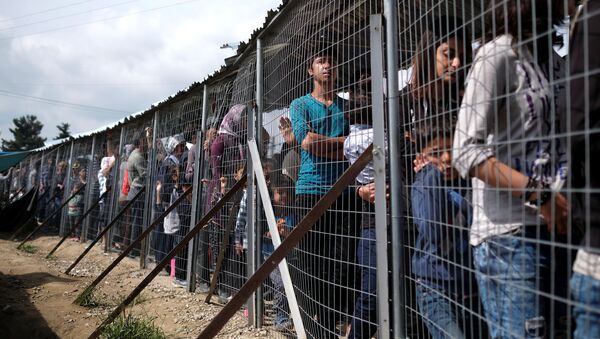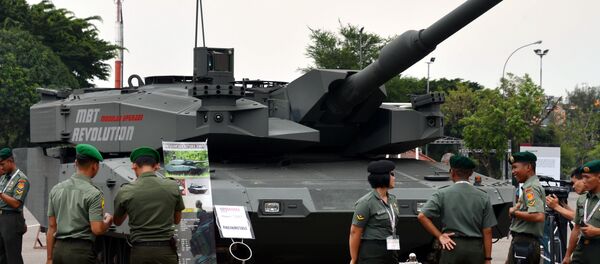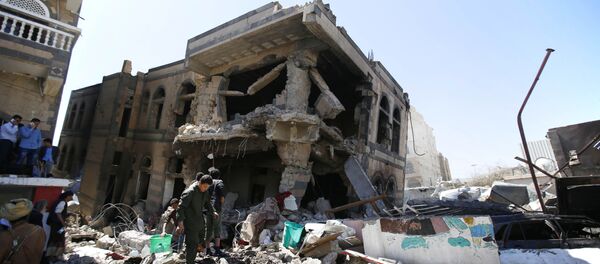The joint report by the European NGO Stop Wapenhandel and the Transnational Institute (TNI), called "Border Wars: The Arms Dealers Profiting from Europe's Refugee Tragedy," reveals the most prominent winners of security contracts which were issued in Europe as a result of the migrant crisis, and Europe's acquiescent response to their lobbying.
"Some of the beneficiaries of border security contracts are some of the biggest arms sellers to the Middle-East and North-African region, fuelling the conflicts that are the cause of many of the refugees. In other words, the companies creating the crisis are then profiting from it."
The big players in Europe's border security complex include arms companies Airbus, Finmeccanica and Thales, which are also three of the top four European arms traders and have been particularly prominent winners of EU contracts aimed at strengthening borders.
Other companies to benefit from the EU's policy response to Middle Eastern conflict are French defense and aerospace company Safran, the Spanish IT and defense systems firm Indra Sistemas, and some Israeli companies like BTec Electronic Security Systems, which promote their expertise based on equipment installed at the Israeli-Palestinian border.
French companies Airbus and Thales, and Italian Finmeccanica, are part of the European Organisation for Security (EOS), which has been most active in lobbying the EU for increased border security. The report notes that many of its proposals, such as its push to set up a cross European border security agency, have eventually ended up as policy.
New EU member states have been required to strengthen borders as a condition of membership, creating additional markets for profit.
"The arms business, in particular sales to the Middle-East and North-Africa, where most of the refugees are fleeing from, is also booming. Global arms exports to the Middle-East actually increased by 61 per cent between 2006–10 and 2011–15. Between 2005 and 2014, EU member states granted arms exports licenses to the Middle East and North Africa worth over 82 billion euros ($91 billion)."
On Tuesday, the German newspaper Tagesspiegel newspaper revealed that the arms industry could benefit even further from a new direction in the EU's African policy.
The fund was established in March 2014 and has a 2.3 billion euro ($2.5 billion) budget, to be disbursed between 2014 and 2020.
"Development without security and stability is not possible," a source in the Commission told the newspaper.
"The Commission is therefore considering increasing its support for security actors," and "in some very special cases," this will include security forces.
The proposal to spend African development funds on security forces was criticized by the German Green Party MEP Reinhard Butikofer, who described it as "breaking a taboo."
Die Linke MEP Sabine Losing called the idea "scandalous," and criticized the "misuse of aid."
She said the proposal is one of a series of "steps in the militarization of EU foreign policy."





